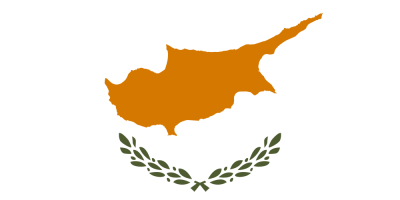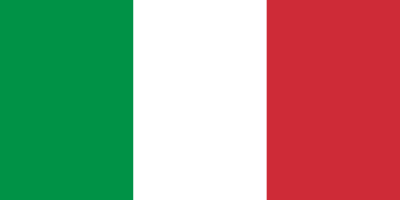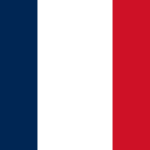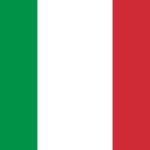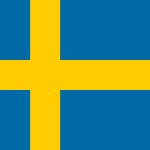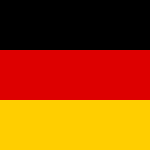Swedish flag color codes is one of the most recognizable national flags, with its bold blue and yellow colors. For those looking to use or represent the colors of the Swedish flag in digital or print design, knowing the precise Sweden flag color codes is essential. This article will provide the hex, RGB, Pantone, HSL, CMYK, HWB, and NCOL values for the blue and yellow of the Sweden flag colors. With the Sweden flag color codes, designers, developers, and anyone else can easily integrate the exact hues of this iconic flag into projects and representations.
Table of Contents
What are the colors of Sweden flag?
The colors of the Swedish flag are:
- Blue – The blue color on the Swedish flag is a deep, rich shade. The exact blue color code is:
Hex: #005B99 RGB: (0, 91, 153) Pantone: 286 C CMYK: 100, 41, 0, 40
- Yellow – The yellow color on the Swedish flag is a bright, golden yellow. The exact yellow color code is:
Hex: #FFCD00 RGB: (255, 205, 0) Pantone: 123 C CMYK: 0, 19, 100, 0
The colors represent the sky (blue) and the sun (yellow). Together the blue and yellow make up the iconic rectangular design of the Swedish flag.
Sweden flag color codes & Color Names:
BLUE
| Color Model | Values |
|---|---|
| HTML | #0051BA |
| HEX | 00, 51, BA |
| RGB | rgb(0, 81, 186) |
| PANTONE | 286 C |
| HSL | hsl(212, 100%, 36%) |
| CMYK | cmyk(100%, 57%, 0%, 27%) |
| HWB | hwb(212, 0%, 27%) |
| NCOL | 80% Blue, 20% Black |
YELLOW
| Color Model | Values |
|---|---|
| HTML | #FECC00 |
| HEX | FE, CC, 00 |
| RGB | rgb(254, 204, 0) |
| PANTONE | 116 C |
| HSL | hsl(46, 100%, 50%) |
| CMYK | cmyk(0%, 20%, 100%, 0%) |
| HWB | hwb(46, 0%, 0%) |
| NCOL | 30% Yellow, 70% Red |
What is the meaning of colors in the Sweden flag?
The colors of the Swedish flag each have symbolic meaning:
Blue – The blue represents the bright blue sky. It is meant to evoke openness, idealism, and expansiveness.
Yellow – The yellow represents the shining sun. It symbolizes warmth, energy, and enlightenment.
Together, the blue and yellow of the Swedish flag represent:
- Sweden’s location – The blue sky and yellow sun reflect Sweden’s northern location where clear blue skies and bright sunlight are common.
- Swedish virtues – Blue and yellow represent Swedish virtues like openness, idealism, enlightenment, and progress.
- Nature – The sky and sun are natural elements that reflect Sweden’s deep connection to nature.
- Hope – The colors elicit optimism, energy, and hope.
So in summary, the blue and yellow symbolize Swedish identity, values, geography, nature, and aspirations. The meanings behind the vivid Sweden flag colors evoke core truths about the essence of Swedish culture, landscapes, and people.
Explore More Flag Colors:
FAQs: Frequently Asked Questions:
Is Sweden very expensive?
Sweden is often considered to be relatively expensive compared to many other countries. Factors contributing to this perception include high taxes, a strong social welfare system, and higher costs for goods and services compared to some other places. However, the quality of life, social services, and standard of living are generally high in Sweden, which can offset some of the higher costs for residents.
Is Sweden good country to live in?
Here are some reasons why:
High Quality of Life: Sweden consistently ranks highly in global quality of life indexes due to factors such as excellent healthcare, education, social welfare programs, and a clean environment.
Safety and Security: Sweden is known for its low crime rates and safe cities, contributing to a sense of security for residents.
Strong Social Welfare System: The Swedish government provides comprehensive social welfare benefits, including universal healthcare, generous parental leave policies, and robust unemployment benefits.
Education: Sweden offers free education, including university education for Swedish and EU/EEA citizens, and has a strong emphasis on quality education at all levels.
Work-Life Balance: Swedes typically enjoy a good work-life balance, with shorter work hours, generous vacation time, and a culture that values leisure and family time.
Progressive Values: Sweden is known for its progressive attitudes toward social issues, gender equality, LGBTQ+ rights, and environmental sustainability.
Nature and Environment: Sweden boasts stunning natural landscapes, including forests, lakes, and coastal areas, providing ample opportunities for outdoor recreation and a high quality of life.
What is the biggest religion in Sweden?
Christianity, specifically the Lutheran branch of Protestantism, is the largest religion in Sweden. The Church of Sweden, a Lutheran church, has historically been the state church of Sweden, although it was officially separated from the state in 2000. While the majority of Swedes are still members of the Church of Sweden, the level of religious observance has declined in recent years, and Sweden is considered one of the most secular countries in the world.
How can I move to Sweden?
Here’s a general overview of the process:
Check Visa Requirements: Depending on your nationality and the purpose of your move, you may need a visa to enter and reside in Sweden. Visit the Swedish Migration Agency’s website or the nearest Swedish embassy or consulate to determine the specific visa requirements for your situation.
Find a Place to Live: Research the housing market in Sweden and find accommodation that suits your needs and budget. Whether you plan to rent or buy, start your search early as housing in certain areas can be competitive.
Secure Employment or Education: If you’re moving to Sweden for work or study, secure a job or admission to an educational institution before your move. Having a job offer or acceptance letter may also facilitate the visa application process.
Apply for Residency Permit: If you plan to stay in Sweden for longer than three months, you’ll likely need to apply for a residence permit. The application process and requirements vary depending on your circumstances, such as whether you’re employed, studying, or joining a family member in Sweden.
Arrange Healthcare Coverage: As a resident of Sweden, you’ll have access to the country’s healthcare system. If you’re coming from a country within the European Economic Area (EEA) or Switzerland, you may be eligible for healthcare coverage through the European Health Insurance Card (EHIC). Otherwise, you’ll need to arrange private health insurance or enroll in Sweden’s national healthcare system.
Register with Authorities: Once you arrive in Sweden, you’ll need to register with the Swedish Tax Agency (Skatteverket) and obtain a personal identity number (personnummer). This number is essential for accessing various services and benefits in Sweden, such as healthcare, banking, and taxation.
Learn Swedish: While many Swedes speak English fluently, learning Swedish can greatly enhance your integration and opportunities in Sweden. Consider enrolling in language courses or using language-learning resources to improve your Swedish proficiency.
Adjust to Swedish Culture: Familiarize yourself with Swedish customs, social norms, and cultural practices to ease your transition and integrate into Swedish society more smoothly.
Is Sweden a rich or Poor country?
Sweden is generally considered a wealthy country. It has a high standard of living, strong social welfare programs, and a developed economy with a high GDP per capita. The country ranks consistently high on various global indices of prosperity, including the Human Development Index (HDI) and the World Happiness Report. However, like any country, Sweden also faces economic challenges and disparities, but overall, it is widely regarded as affluent and prosperous.
Is English spoken in Sweden?
Yes, English is widely spoken and understood in Sweden, particularly among younger generations and in urban areas. Many Swedes start learning English at a young age in school, and it is often taught as a mandatory subject from primary school onwards. As a result, proficiency in English is generally high among the Swedish population.
Is Education in Sweden free?
Education in Sweden is generally free for Swedish citizens, EU/EEA nationals, and individuals with permanent residency status. This includes primary and secondary education, as well as higher education, including university studies. However, while tuition fees for higher education are typically waived for eligible students, there may still be some costs associated with textbooks, study materials, and living expenses.
Does Sweden give citizenship?
Here are some key points regarding Swedish citizenship:
Residency Requirement: Generally, individuals must have lived in Sweden for a certain period, usually five years, with a permanent residency permit to be eligible for citizenship. There are exceptions to this requirement for certain groups, such as refugees and stateless persons.
Language Proficiency: Applicants for Swedish citizenship are typically required to demonstrate proficiency in the Swedish language, usually through passing a standardized language test.
Good Conduct: Applicants must have a clean criminal record and be able to demonstrate good conduct and integration into Swedish society.
Financial Stability: Applicants must demonstrate financial stability and the ability to support themselves and any dependents.
Application Process: The application process for Swedish citizenship involves submitting an application to the Swedish Migration Agency, providing supporting documentation, attending interviews, and potentially undergoing background checks.
Dual Citizenship: Sweden generally allows dual citizenship, meaning individuals can hold Swedish citizenship along with citizenship from another country.

